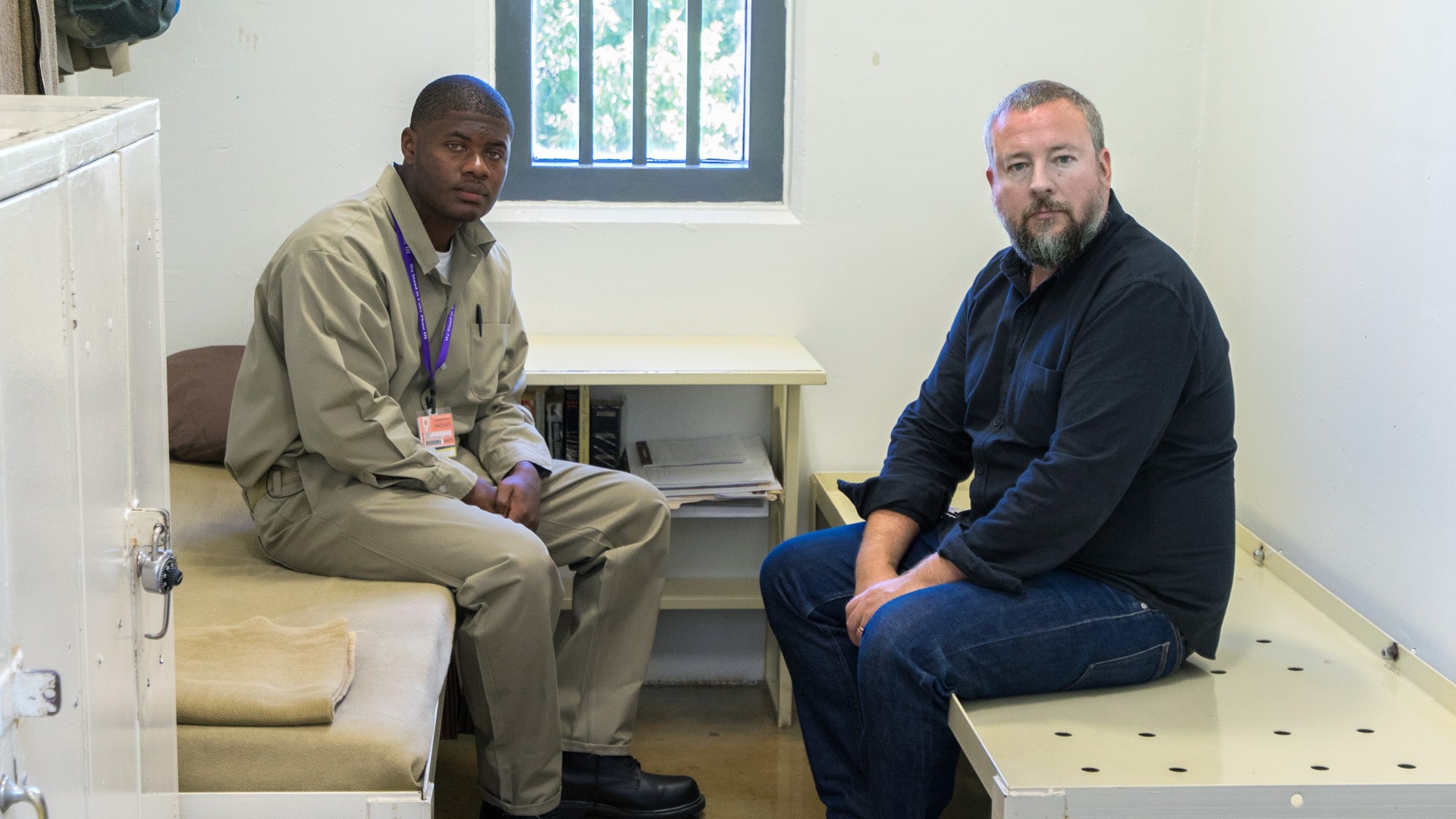Photo via Wikimedia Commons
According to a recent study, out of 25,431 federal offenders who were released in 2005, about half were re-arrested during the eight-year follow-up period. Most of those arrests happened during their first two years of being out.While there are a number of predictors for recidivism (or the tendency for a former prisoner to reoffend), finding employment is one of the most important steps to assimilating back into society. Unfortunately, studies have shown that anywhere between 60 and 75 percent of ex-offenders are still unemployed a year after their release."The problem compounds itself," says Frank Zarro, who helped create the Skidmore College Restorative Justice Project in New York. "Because people aren't employed," he told VICE Impact, "they are more prone to return to prison. It's a vicious cycle. This is all part of the mass incarceration crisis that we're in today."To help reduce the rates of federal offenders being rearrested, Georgia Rep. Doug Collins filed the Prison Reform and Redemption Act in July 2017. The bill requires the Department of Justice to create a system that would assess the needs of prisoners to help keep them from reoffending. Not only would it set up prison education programs, the legislation would also allow prisoners to serve out the final days of their sentences in halfway houses or home confinement.
Check out more videos from VICE:
Similar to a dating website, WhenPeopleWork uses an algorithm to help match job seekers to employers. In this case, however, the criteria are specific to someone who's been incarcerated, such as curfews, fence-based restrictions on work and geographic restrictions. Family members can sign on as proxies for job seekers, and because the system can be made available in prisons and jails, employers can be matched with people who are still incarcerated and nearing release.WhenPeopleWork also allows ex-offenders to avoid the controversial "check box" on hiring applications that asks potential employees about criminal history. "When you eliminate that 'check the box' question, you're also eliminating the stigma that's attached to it," Rule, now the COO of WhenPeopleWork, told VICE Impact. "The whole issue of stigma is one that looms so large among this population of people—who were formerly incarcerated or who have criminal records—it really is the long shadow of incarceration that follows them through the rest of their lives. It cripples their chances for a decent job, adequate housing, financial stability."
Advertisement
But criminal justice reform has been slow-moving in Congress. That's why Zarro and Sheila Rule, a prison reform advocate, are aiming to help people break out of the cycle of incarceration with WhenPeopleWork.com, an online employment platform that matches formerly incarcerated people who want to work with employers who have already decided to hire from within this population.While there are plenty of efforts out there working to address this issue—such as the Center for Employment Opportunities, Help For Felons, and many state-run re-entry programs that help with skills training and more—this new platform goes beyond simply offering a general list of places known for not turning away people with criminal records.Anywhere between 60 and 75 percent of ex-offenders are still unemployed a year after their release.
Advertisement
Check out more videos from VICE:

Similar to a dating website, WhenPeopleWork uses an algorithm to help match job seekers to employers. In this case, however, the criteria are specific to someone who's been incarcerated, such as curfews, fence-based restrictions on work and geographic restrictions. Family members can sign on as proxies for job seekers, and because the system can be made available in prisons and jails, employers can be matched with people who are still incarcerated and nearing release.
The system, which is free for both applicants and employers to use, is still in its preliminary stages; Zarro says they're still in the process of recruiting city and state governments to participate in the program. For example, he says, they're working with officials in Connecticut to put a pilot project there.Additionally, Zarro says they've built a social impact analytics system that will help them report back to governments how much money they're saving, how families are being impacted and other factors to show them the power of employing former offenders."It's a public education process," he says. "This will be a powerful public policy tool which can result in our lawmakers and executives and corrections and law enforcement officials making better and more humane criminal justice decisions and policies.""This will be a powerful public policy tool which can result in our lawmakers and executives and corrections and law enforcement officials making better and more humane criminal justice decisions and policies."
Advertisement
To illustrate just how hard it is for former offenders—and particularly so for people of color—to get on their feet financially, Rule shares the story of a young man she spoke with in Pennsylvania. He worked at a temp agency, she says, and did so well that the agency recognized him with an employee of the year award. Moreover, the company he was working for at the time reported wanting to hire him. But when they discovered via a background check that he'd formerly been in prison, they immediately fired him, despite all the good work he'd done."It is formidable that you have these wide-ranging roadblocks," Rule says. "That's what we're here to address."If you're in New York, check up on the state's "Work for Success Pledge," which is an agreement between the state and businesses to consider hiring qualified talent with prior convictions. If you're an employer in New York and you're ready to step up and make a change on criminal justice reform, then sign the council's pledge to hire talent now.READ MORE: VICE's Apprenticeship Program Is Changing the Justice System Narrative
